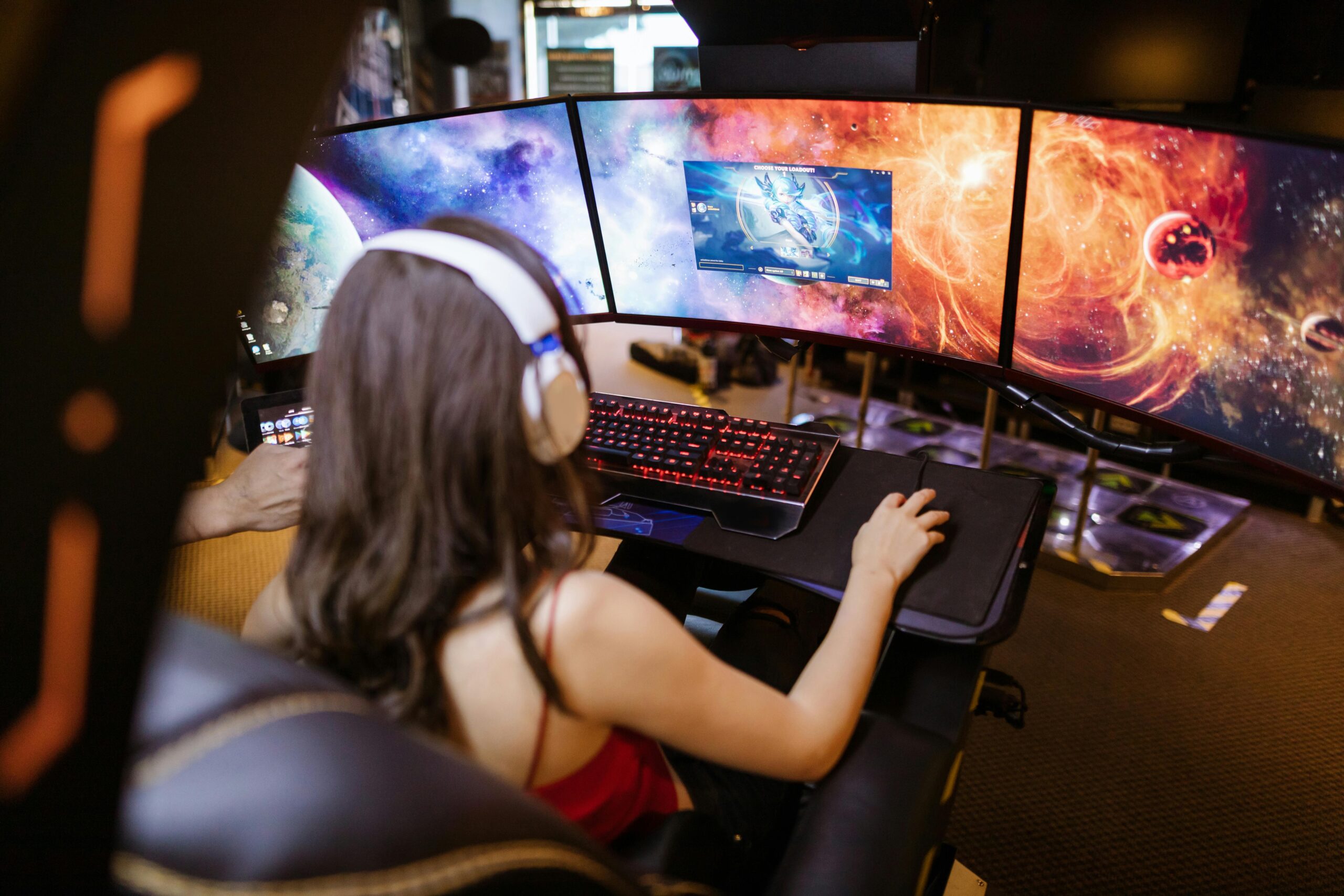The digital age has revolutionized entertainment, with PC gaming emerging as a major industry. However, amidst the excitement and innovation, a darker issue persists: the theft and unauthorized publication of games. This blog post explores the ramifications of game theft and piracy in the PC gaming world, examining how these practices undermine the industry, impact developers, and affect the broader gaming community.
The Phenomenon of Game Theft
Game theft, or piracy, involves the unauthorized acquisition and distribution of games. This can occur in various ways, from copying and sharing game files without permission to hacking and redistributing games through unofficial channels. The digital nature of PC games makes them particularly vulnerable to these practices.
The Mechanics of Game Theft
- Cracking and Piracy Tools: Pirates often use specialized software to bypass copy protection and digital rights management (DRM) systems. Tools like keygens (key generators) and cracks modify game files to disable security measures, allowing unauthorized access and distribution.
- Torrenting and File Sharing: Pirates frequently use peer-to-peer (P2P) networks and torrent sites to distribute cracked versions of games. These platforms facilitate the sharing of large files by breaking them into smaller pieces, which are then redistributed among users.
- Fake Distribution Channels: Some malicious actors create counterfeit websites or storefronts that claim to offer legitimate copies of games. These sites often trick users into downloading malware or pirated copies under the guise of official releases.
The Impact on Developers
The consequences of game theft are profound and multifaceted, particularly for developers and publishers who invest substantial time and resources into creating and marketing games.
Economic Losses
- Revenue Decrease: Game theft directly impacts the revenue streams of developers and publishers. When players download pirated copies instead of purchasing legitimate ones, the financial losses can be significant. According to industry estimates, piracy can lead to millions of dollars in lost revenue.
- Budget Constraints: Reduced revenue from piracy can affect future projects. Developers may face budget constraints, limiting their ability to invest in new games or support existing titles. This can stifle creativity and innovation within the industry.
Impact on Indie Developers
While large studios may have the resources to weather the storm of piracy, indie developers face unique challenges. Indie games are often produced on smaller budgets with fewer financial safety nets.
- Disproportionate Impact: For indie developers, piracy can have a more pronounced effect. A significant portion of their revenue comes from direct sales, making them more vulnerable to the financial repercussions of game theft.
- Strained Resources: Indie developers often rely on the success of their games to fund future projects. Piracy can strain their resources, impacting their ability to create and market new titles effectively.
Creative and Emotional Toll
Beyond financial losses, game theft can take an emotional and creative toll on developers.
- Decreased Motivation: Knowing that their hard work is being stolen and shared without compensation can be demoralizing for developers. This can lead to decreased motivation and a diminished sense of accomplishment.
- Reduced Support for Games: Developers often provide ongoing support and updates for their games. However, when piracy undermines their revenue, they may be less inclined to continue supporting or improving their titles.
The Broader Impact on the Gaming Community
Game theft and piracy do not only affect developers; they also have repercussions for the gaming community as a whole.
Quality and Security Concerns
- Malware Risks: Downloading games from unofficial sources increases the risk of malware infections. Pirated games are often bundled with viruses, trojans, or other malicious software that can compromise users’ systems.
- Lack of Updates and Support: Pirated games typically do not receive official updates or support. Players may miss out on important patches, bug fixes, and new content, leading to a subpar gaming experience.
Undermining Fair Competition
- Unfair Advantages: Piracy can create an uneven playing field, particularly in competitive gaming. Players who use pirated copies may gain access to features or advantages that are not available to those who purchase legitimate copies.
- Decreased Investment in Quality: When developers face financial losses due to piracy, they may be less inclined to invest in high-quality games. This can result in fewer innovative and well-crafted titles in the market.
Legal and Ethical Considerations
The legal and ethical implications of game theft are significant and far-reaching.
Legal Consequences
- Copyright Infringement: Game theft constitutes copyright infringement, which is illegal under copyright law. Developers and publishers have the right to protect their intellectual property, and piracy undermines these legal protections.
- Legal Actions: Developers and publishers may take legal action against pirates, but pursuing legal remedies can be costly and time-consuming. Enforcement of copyright laws varies by jurisdiction, making it challenging to address piracy effectively.
Ethical Implications
- Respect for Creators: Piracy undermines the principle of respecting the intellectual property and creative efforts of game developers. By engaging in game theft, individuals are effectively denying creators the compensation they deserve for their work.
- Community Responsibility: The gaming community has a role to play in combating piracy. Supporting legitimate channels and respecting intellectual property rights contributes to a healthier and more sustainable gaming industry.
Addressing the Issue: Solutions and Strategies
While game theft presents significant challenges, there are strategies that developers, publishers, and the gaming community can adopt to address the issue.
Enhanced Security Measures
- Improved DRM Systems: Developers can implement robust DRM systems to protect their games from unauthorized distribution. However, it is essential to balance security with user experience to avoid alienating legitimate customers.
- Frequent Updates and Patches: Regular updates and patches can help deter piracy by making it more challenging to maintain cracked versions of games. By continually improving their games, developers can incentivize players to purchase legitimate copies.
Fostering a Supportive Community
- Engaging with Fans: Developers can build strong relationships with their fan base through active engagement and communication. By fostering a supportive community, developers can encourage players to support their work through legitimate channels.
- Promoting Fair Pricing: Offering games at fair prices and providing discounts or bundles can incentivize players to purchase legitimate copies. Developers can also explore alternative pricing models, such as subscription services, to make games more accessible.
Educational Campaigns
- Raising Awareness: Educating players about the consequences of piracy and the importance of supporting developers can help shift attitudes and reduce game theft. Awareness campaigns can highlight the impact of piracy on the industry and encourage ethical behavior.
- Providing Legal Alternatives: Offering accessible and affordable legal alternatives can help reduce the appeal of piracy. Platforms like Steam, GOG, and Epic Games Store provide legitimate access to a wide range of games, often with regular sales and discounts.
Conclusion
The issue of game theft and piracy is a complex and multifaceted challenge that affects every aspect of the PC gaming industry. From financial losses and creative challenges for developers to quality and security concerns for players, the repercussions of piracy are far-reaching.
Addressing game theft requires a collaborative effort from developers, publishers, and the gaming community. By implementing robust security measures, fostering a supportive community, and promoting legal alternatives, the industry can work towards mitigating the impact of piracy.
Ultimately, respecting the intellectual property of creators and supporting legitimate channels contribute to a healthier and more sustainable gaming ecosystem. As gamers, we have a responsibility to support the industry and ensure that the creative efforts of developers are valued and rewarded. By doing so, we can help shape the future of PC gaming and ensure that it remains a vibrant and innovative medium for years to come.








